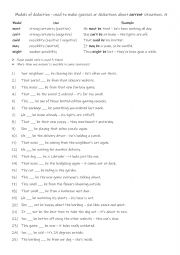
Modals of deduction - used to make guesses or deductions about current situations. 4
Students should learn modals of deduction because they are useful for expressing logical guesses or assumptions about present situations, helping speakers show how certain or uncertain they are. These modals, such as must, might, could, and can�t, make speech sound more natural and fluent, improve communication and reasoning skills, and are commonl...
Level: elementary
Age: 8-100
Type:
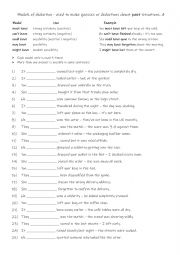
Modals of deduction - used to make guesses or deductions about past situations. 4
Students should learn modals of deduction because they are useful for expressing logical guesses or assumptions about past situations, helping speakers show how certain or uncertain they are. These modals, such as must have, might have, could have, and can�t have, make speech sound more natural and fluent, improve communication and reasoning skills...
Level: elementary
Age: 8-100
Type:

adjective or adverb
Adjective or adverb
Level: intermediate
Age: 8-100
Type:
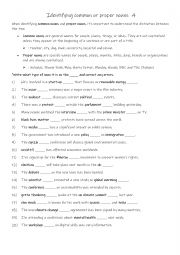
Identifying common or proper nouns 4
First, students need to familiarise themselves with the 2 types of nouns. Then they read the sentences to identify and use the correct punctuation for all of the sentences. Answers on page 2
Level: elementary
Age: 8-100
Type:

test
Level: elementary
Age: 12-100
Type:
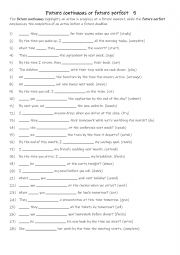
A2+-B1 Future continuous or future perfect 5
Understanding these tenses allows students to communicate future goals, schedules, and timelines effectively, enhancing both their speaking and writing skills for academic, professional, and everyday use. First, students need to familiarise themselves with the 2 tenses and their use. Then they read the sentences to work out which tense is needed to...
Level: elementary
Age: 10-100
Type:
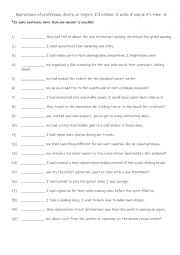
A2-B1 Expressions of preference, desire, or regret I�d rather, I wish, if only & it�s time 4
Students should learn expressions of preference, desire, or regret like "I�d rather," "I wish," "If only," and "It�s time" because they help them communicate personal feelings, make choices, and reflect on past experiences or future possibilities in English. These phrases allow students to express what they want, what they regret, or what they feel...
Level: elementary
Age: 10-100
Type:

A or An focussing on sound
This worksheet focusses on the difference between A and An. Based on the sound of the next word. Common confusion exists about this topic. It is not the spelling of the word that determines the choice between A or AN, but the pronunciation.
Level: intermediate
Age: 10-100
Type:

Transitive or Intransitive?
Level: intermediate
Age: 13-100
Type:

the requirements to write an advert
interesting document stating the characteristics of an ad. That�s extremely important for 4th forms
Level: intermediate
Age: 15-100
Type:

Fundraising vocab fill in the blanks with could for suggestions or going to for plans
Fill in the blanks in the dialogues with fundraising vocabulary and either could (when talking about suggestions) or be going to (to talk about plans).
Level: intermediate
Age: 10-14
Type:

mustn�t or be not allowed to
You can discuss the prohibitions and allowed actions.
Level: intermediate
Age: 13-100
Type:

The history of the Simpsons
Oral comprehension
Level: intermediate
Age: 15-17
Type:

my awards
for students getting points
Level: elementary
Age: 3-11
Type:

The truman Show
A simple Lesson for high school to adults.
Level: intermediate
Age: 14-100
Type:
|
|
|